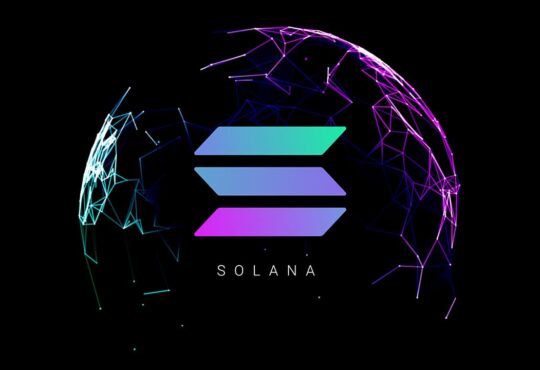
Prediction: This Will Be the First Artificial Intelligence (AI) Stock To Reach a $4 Trillion Valuation in 2025
Three companies currently boast a market cap over $3 trillion, and I think one of them will reach the $4 trillion mark sooner than later.
Right now, there are only three companies in the world with a market cap of at least $3 trillion. These companies are Apple, Nvidia (NVDA 4.45%), and Microsoft — each of which are playing a major role in the ongoing artificial intelligence (AI) saga.
While Apple currently stands in the lead with a market cap around $3.8 trillion, I see Nvidia as the most likely among the trio to reach a $4 trillion valuation first.
I’ll detail Nvidia’s tailwinds and make the case why I think the semiconductor darling has some major upside heading into 2025.
Why Nvidia could reach $4 trillion first
Over the last two years, Nvidia’s business has experienced something of a renaissance. While the company’s original focus was on enhanced graphics performance for video games, Nvidia discovered that its graphics processing unit (GPU) chipsets could be integral for generative AI development.
Given Nvidia’s existing inroads in the GPU realm, the company has faced very little competition since AI emerged as a megatrend a couple of years ago. For this reason, the company has been able to command high levels of pricing power for its chips, which has led to record revenue and profit growth for the company.
Moreover, demand for Nvidia’s Hopper GPUs has helped the company acquire nearly 90% of the GPU market — a trend that could actually continue climbing higher.
In 2025, the narrative around Nvidia is going to surround on item: the company’s next-generation Blackwell GPU architecture. According to industry analyst Beth Kindig, production of Blackwell GPUs is expected to triple between the current quarter (Q4) and the first quarter of 2025.
Nvidia’s $NVDA Blackwell production could nearly triple by Q1, rising from 250K-300K units in Q4 to 750K to 800K units in Q1 according to Morgan Stanley.
This is an increase from previous industry estimates for 200K in Q4 and 550K in Q1. https://t.co/J52OPyubsJ
— Beth Kindig (@Beth_Kindig) December 27, 2024
While it’s difficult to assess what these figures will translate to in terms of dollars, I see the rising production estimates as a good proxy for Nvidia’s near-term growth.
Although shares of Nvidia gained roughly 170% in 2024, the stock has taken a breather over the last month or so. I think one reason for the slight sell-off pertains to the Blackwell launch, as there is clearly a lot riding on Nvidia’s ability to execute and maintain its position as the top chip business. Should the Blackwell launch exceed expectations (which appears likely), I think it’s reasonable that Nvidia stock will witness some new life and shares could begin soaring once again.
By contrast, while Apple and Microsoft each have catalysts of their own, such as the iPhone 16 equipped with Apple Intelligence and demand for Azure cloud computing infrastructure, I don’t think either of these opportunities carry the same upside compared to what Blackwell could mean for Nvidia.
Image source: Getty Images.
How much upside does this imply for Nvidia investors?
Right now, Nvidia’s market cap hovers around $3.3 trillion. In order to reach the $4 trillion milestone, Nvidia’s value would need to increase by approximately 21%.
NVDA Market Cap data by YCharts
While a move of this magnitude is certainly achievable, it’s important to keep in mind that Nvidia executed a 10-for-1 stock split earlier in 2024. Since the company’s outstanding share count is now higher by tenfold, it’s highly unlikely that Nvidia stock will experience a 20% gain in a matter of just a few trading days.
I think in order for Nvidia shares to rise by another 20% or more, the company is going to need to demonstrate consistent growth around Blackwell and the data center business as a whole. As such, I think smaller, incremental moves will occur in Nvidia stock throughout 2025 as more information becomes public related to Blackwell.
Adam Spatacco has positions in Apple, Microsoft, and Nvidia. The Motley Fool has positions in and recommends Apple, Microsoft, and Nvidia. The Motley Fool recommends the following options: long January 2026 $395 calls on Microsoft and short January 2026 $405 calls on Microsoft. The Motley Fool has a disclosure policy.





